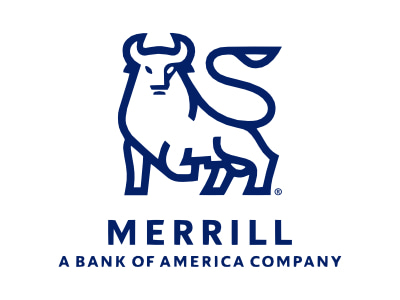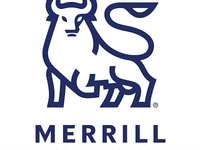9 tax tips that could save you money

For ways to potentially reduce your tax bill this year or moving forward, consider these ideas from Bank of America
Taking time to review your financial and tax situation could help you (and your family) keep more of what you have earned. While some strategies apply now, others involve anticipating changes to come. For example, deep cuts in gift and estate tax exemptions, scheduled for the end of 2025, may be a good reason to start planning. “These are not decisions you want to make quickly,” says tax accountant Vinay Navani of WilkinGuttenplan.
Below, Navani shares insights on tax-efficient approaches to estate planning, investing for retirement and other issues. Ask your tax professional whether they might make sense for you.
1. Review your gift and estate plans
If you regularly give to charity and itemize deductions, consider putting several years’ worth of gifts into a donor-advised fund (DAF) for a single year, Navani suggests. “You may earn an immediate deduction, and you can spread out the giving over several years.”
Without Congressional action, the federal gift and estate tax exemption will drop significantly in 2026, potentially exposing millions to higher taxes. You may want to consider moving assets out of your estate through gifts now, Navani suggests. Part of the planning may involve the best ways to structure gifts, so speak with your advisor and tax specialist about trust options.
2. Put losses to work
With a process known as tax-loss harvesting, you could sell underperforming assets that you were planning to sell anyway, invest the proceeds in assets you consider more promising, and use the losses to offset capital gains from elsewhere in your portfolio. To avoid triggering what’s known as the wash sale rule, which would disallow the loss, you cannot buy substantially similar assets within 30 days before or after the sale.
3. Keep track of where you work
Do you work remotely? Generally speaking, once you work in a state for 183 days, that state may consider you a resident and tax your income. To help avoid potential penalties, Navani suggests carefully tracking where you work every day and speaking with your tax advisor about the latest rules in the states where you live, where you work remotely and where the business is located.
4. Max out retirement plans
Consider increasing your contributions to your 401(k), IRA or other qualified retirement plan. Not only does this offer the possibility of increasing retirement savings, but it can also potentially lower your taxable income. For 2024, you can contribute up to $23,000 to a 401(k) and $7,000 to an IRA. If you will be age 50 or older within the calendar year, you may be able to take advantage of higher “catch-up” contribution amounts.
5. Consider converting your traditional IRA to a Roth IRA
You can convert all or a portion of a traditional IRA to a Roth IRA. Unlike with a traditional IRA, qualified distributions of converted amounts from a Roth IRA are not generally subject to federal income taxes if you are age 59½ or older and at least five years have passed since the beginning of the year of your first Roth IRA contribution or conversion.
However, when you convert your traditional IRA to a Roth, the total of your deductible contributions and any earnings is taxable income.
6. Look for tax-aware investing strategies
Consider putting a portion of your income into investments that are not generally subject to federal income taxes, such as tax-free municipal bonds. Doing so could potentially ease your tax burden when these investments generate income.
7. Fund a 529 education savings plan
Contributions to a 529 education savings plan can potentially grow tax-free and withdrawals are federal — and usually state — tax-free if used for qualified education expenses. What’s more, by putting money into a 529 account, you may be able to give a gift to a beneficiary without triggering federal gift taxes. You may also be able to contribute up to five years’ worth of the annual gift tax exclusion amount per beneficiary in one year, subject to certain conditions.
8. Cover healthcare costs efficiently
Both health savings accounts (HSAs) and health flexible spending accounts (health FSAs) could allow you to sock away tax deductible or pretax contributions to pay for certain medical expenses. You must purchase a high-deductible health insurance plan to fund an HSA and not have disqualifying additional medical coverage, such as a general purpose health FSA, and unless the FSA is a “limited purpose” FSA, you cannot contribute to both accounts. Money in an HSA can roll over from year to year, but the funds you contribute to an FSA generally must be spent during the plan year.
9. Move toward clean energy
The 2022 Inflation Reduction Act included nearly $400 billion for clean energy tax credits and other climate-related provisions. That includes potential tax credits for buying new or used electric or hybrid clean vehicles and making your home more energy efficient. Restrictions apply, so check with your tax advisor on which credits might be available to you, Navani suggests.
Investing involves risk. There is always the potential of losing money when you invest in
securities.
Asset allocation, diversification, and rebalancing do not ensure a profit or protect against
loss in declining markets.
This material does not take into account a client’s particular investment objectives, financial
situations, or needs and is not intended as a recommendation, offer, or solicitation for the purchase or sale of any security or investment strategy. Merrill offers a broad range of brokerage, investment advisory (including financial planning) and other services. There are important differences between brokerage and investment advisory services, including the type of advice and assistance provided, the fees charged, and the rights and obligations of the parties. It is important to understand the differences, particularly when determining which service or services to select. For more information about these services and their differences, speak with your Merrill Lynch Wealth Management Advisor.
For more information, contact Merrill Lynch Financial Advisor Don P. Martone of the Hughes Landing office at (281) 882-4818 or follow him on LinkedIn.
Banking products are provided by Bank of America, N.A., member FDIC, and a wholly owned subsidiary of Bank of America Corporation (BofA Corp.)
Bank of America, N.A. makes available The H.S.A. for Life® Health Savings Account.
Bank of America is a marketing name for the Retirement Services business of Bank of America Corporation (“BofA Corp”). Banking activities may be performed by wholly owned banking affiliates of BofA Corp., including Bank of America N.A., member FDIC. Please consult your tax or legal advisor regarding specific use of Health Savings Accounts. Investments can lose money. Neither Bank of America nor any of its affiliates, provide legal, tax or accounting advice. You should consult your legal and/or tax advisors before making any financial decisions.
Merrill Lynch, Pierce, Fenner & Smith Incorporated (also referred to as “MLPF&S” or “Merrill”) makes available certain investment products sponsored, managed, distributed or provided by companies that are affiliates of Bank of America Corporation (“BofA Corp.”). MLPF&S is a registered broker-dealer, registered investment adviser, Member SIPC and a wholly owned subsidiary of BofA Corp.
Investment products:
|
Are Not FDIC Insured |
Are Not Bank Guaranteed |
May Lose Value |
© 2024 Bank of America Corporation. All rights reserved.
MAP6304394
For more information, contact Merrill Lynch Financial Advisor [NAME] of the [NAME OF OFFICE] office at [Contact Information]
© 2023 Bank of America Corporation. All rights reserved.
















